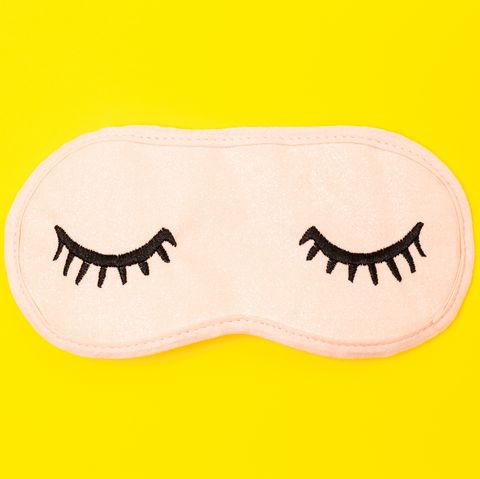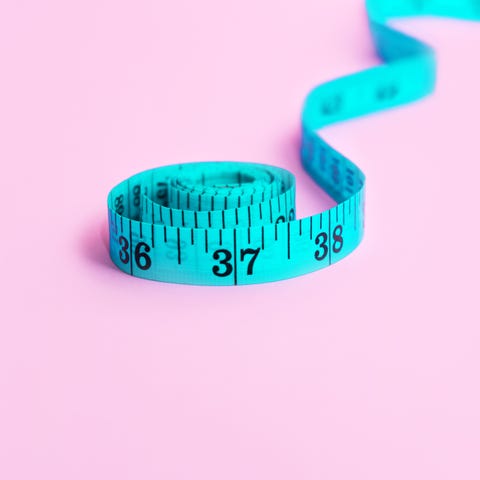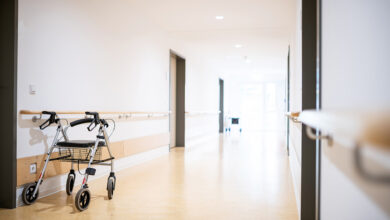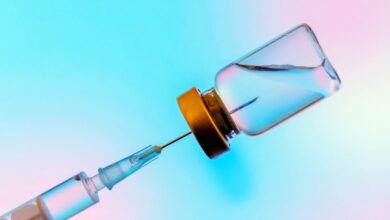5 Totally Normal Physical Changes You May Experience As You Get Older

[ad_1]
Granted, women know the arrival of menopause is going to mean some pretty big changes with their bodies (not to mention the official end of those reproductive years), but what’s easy to lose sight of is that it’s a totally natural process. And, one you can actually prepare for. Watch the video above and read on for the five biggest changes leading up to menopause and what you can do to ace this life stage.
1. Painful Sex
As you approach menopause, your estrogen levels decrease, which can often lead to vaginal dryness, irritation, and thinning of the vaginal wall. These symptoms can make sex painful. However, unlike night sweats and hot flashes, painful sex gets worse over time, says Stephanie Faubion, M.D., director of the Office of Women’s Health at the Mayo Clinic in Jacksonville, Florida, and medical director of The North American Menopause Society (NAMS). And even worse, roughly 50 percent of women in the US experience painful sex, but many women don’t get treatment. “The majority of women don’t ask about it and their providers don’t bring it up,” she says. “I wish everyone would because there are lots of treatment options available.”
What to do: Using a lubricant during sex may counteract the dryness and irritation. “Keep in mind, however, that lubricants used during sex and vaginal moisturizers used a few times a week won’t help with the underlying issue,” she says. “But they can help make the sexual experience less painful.” To get more sustainable relief, talk to your OB-GYN about a prescription vaginal estrogen cream or insert that can replenish estrogen.
2. Sleep Disturbances
Changes in your sleep patterns can be an ongoing issue during menopause and are often be triggered by stress. “This is a period of vulnerability,” Dr. Faubion says, noting that an important step is to figure out why you’re having difficulty sleeping. Many menopausal women have trouble falling asleep initially, or wake up in the middle of the night and can’t fall back asleep. Beyond stress-induced insomnia, other reasons for sleep troubles can include hot flashes, night sweats, restless leg syndrome, sleep apnea, and needing to go to the bathroom.
What to do: Practice good sleep ‘hygiene’ by turning off your devices an hour before bed and establishing a consistent bedtime routine. Dr. Faubion suggests speaking with your healthcare provider about any medical conditions that could be interfering with your sleep or discussing OTC or prescription remedies that might help you get more ZZZs.
3. Mood Swings
Due to a drop-off in estrogen levels, mood disorders and rapidly shifting emotions are incredibly common during menopause, Dr. Faubion says. “The women most at risk for experiencing this are those who have a history of hormone-sensitive mood issues, PMS, postpartum baby blues, and depression,” she says.
What to do: Speak with your healthcare provider about options for feeling better if you feel like you’re on a constant emotional rollercoaster. “The good news is that if you ever took an antidepressant—and it worked—it’s likely to work again,” Dr. Faubion says. Now’s also a good opportunity to connect with others who are going through the same life stage (whether it’s family, friends, or an online support group, like Red Hot Mamas), start therapy, or try new creative projects.
4. Weight Gain
You may notice an uptick in your weight or a change in body shape when you reach middle-age. For example, weight tends to become redistributed around your mid-section, rather than your hips and thighs. This is not only due to changes in how quickly you burn calories but is also attributed to muscle loss that kicks in at this phase of life. “Women lose a little bit of muscle mass every year after age 50,” Dr. Faubion says. “Muscle burns calories and we burn fewer calories when we sit versus when we exercise. If you take in more calories, you’ll gain an average of 1.5 pounds per year.”
What to do: It’s never too late to start exercising more and making a few diet tweaks. To counteract muscle loss, aim to incorporate strength training exercises into your routine at least twice a week. You should also aim to eat protein-rich foods, fruits, and vegetables and avoid sugary drinks, fried foods, and desserts, Dr. Faubion says.
5. Bone Issues
Besides the loss of muscle mass, women also have to deal with bone density loss. This is most common in the first five years after menopause, so keeping an eye on your bone health is critical, Dr. Faubion says. Bone density loss isn’t obvious but could show through symptoms like brittle or weak fingernails or a decrease in your grip strength. Beyond watching out for these changes, “It’s just as important to understand what your risks are for osteoporosis,” she says. A family history of the bone disease, past bone fractures, and a history of smoking, drinking alcohol, or taking steroids can all play a role.
What to do: To best protect your bones, make sure you’re getting enough calcium in your diet—starting today. “I recommend 1,200 milligrams of elemental calcium from all sources, including diet and supplements, and making sure you’re not low on vitamin D,” she says. (Your doctor can order a blood test to check both your calcium and vitamin D levels.) “Doing weight-bearing exercise to maintain muscle mass is also important.” And rest assured: Not all women need to be screened for osteoporosis immediately following their last period. “The official age to begin screening is 65 unless you have a risk factor,” Dr. Faubion says.
This content is created and maintained by a third party, and imported onto this page to help users provide their email addresses. You may be able to find more information about this and similar content at piano.io
[ad_2]
Source link






